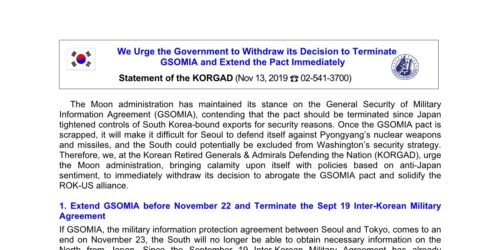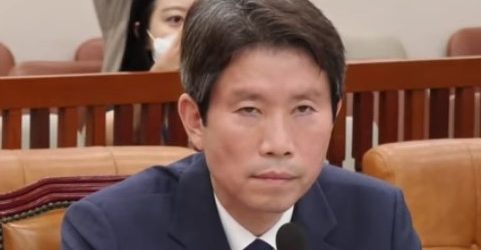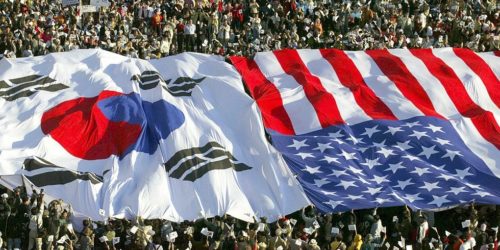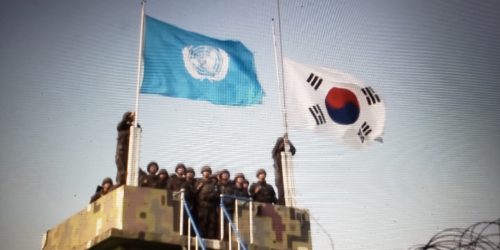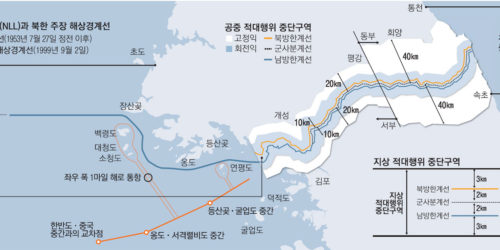A Message to South Koreans, from Retired Generals Worrying about National Security
2017-11-21
About 400-500 retired generals gathered at the Korean War Memorial Museum at Yongsan, Seoul on November 21, 2018. About 1,500 attendees filled all 900 seats and overflowed into the hallways. The meeting arose out of a strong concern about the security of the Republic of Korea due to the Moon Jae-in administration’s security and defense policies. The below is their message to South Korean citizens.
—————–
Message to Fellow Citizens
We at the Retired Generals Worrying [about] National Security, a group consisting of some 415 retired generals including 9 former Defense Ministers and over 30 former Chiefs of Staffs of ROK [Republic of Korea] Army, Navy, and Air Force and Marine Corps Commanders, held a “Grand Forum” on November 21, 2018, at the War Memorial in downtown Seoul to debate on the problems built in the 9·19 Inter-Korean Military Agreement. Through the Forum, we assessed the current state of our national security and reached a conclusion that our national security system is being rashly dismantled and our military is being disarmed at an alarming pace, while North Korea does not show sincerity toward denuclearization and qualitative change. With this being the case, we, as responsible members of society who have spent entire lives defending and protecting the liberal democracy of this nation, ought to express our deepest concerns toward such findings by sending the following message to our fellow South Koreans:
First, we believe that the Moon government’s efforts toward inter-Korean peace and co-prosperity should be pursued on the basis of firm national identity embracing liberal democracy and principles of market economy as well as unshakable national security. Therefore, we oppose any measures that can damage national identity, military capability of ROK armed forces, and alliance capabilities. In this context, we have witnessed various problematic measures already implemented or being pursued by the current administration such as restriction of the anti-North Korea intelligence function of the National Intelligence Service (NIS) and National Security Command, the Military Reforms 2.0 aimed at reducing our military strength, suspension of joint military exercises, premature transfer of wartime operational control (OPCON), the proposed signing of an end-of-war declaration, the September 19 Inter-Korean Military Agreement that is of great advantage to North Korea etc., just to list a few. Witnessing how swiftly and simultaneously all these measures have been taken place or pushed within a short span of time, we cannot help but worry of the threat they can pose to identity and legitimacy of this nation as well as to its security.
Second, we hope that fellow citizens share with us these security concerns and join us in demanding the Moon administration to review and revamp its policies on national security, defense, and alliances. To this end, we want to remind the public that the defense reform that plans to lower our military capabilities prior to the North’s complete denuclearization and qualitative change along with any measures distracting our military readiness or dampening military morale may be not only ill-timed but also lead to a disastrous collapse of the whole national security. Above all, for South Korea, which should be prepared against both present and future threats after unification, a single administration should not and cannot decide such fundamental changes in the nation’s security policy lines at its discretion.
Third, suspension of the ROK-U.S. joint military exercises, though necessary for the purpose of negotiating with the North, should be at a minimal level. We want to remind the public that the ROK-U.S. joint military drills have been the centerpiece of ‘fight tonight’ military preparedness and maintenance of the alliance that has provided South Korea with security shield and economic stability. In the same context, the current OPCON system needs to remain intact for the time being since the current system, which allows the ROK-U.S. forces to fight under a unified command structure in case of contingencies, has enormous advantages in deterring a war, securing U.S. military intervention if a war breaks out, and winning the war, thus decisively contributing to maintaining peace in the Korean Peninsula. This is why OPCON separation has been Pyongyang’s 70-year old desideratum. Though proponents of an early OPCON separation willingly cite national pride, military sovereignty or other sentimental reasons, survival of the nation should always come before pride. We hope, therefore, that fellow Koreans will join us in calling on the government to deal with this critically important issue from a rational viewpoint.
Fourth, we believe the 9·19 Inter-Korean Military Agreement unjustifiably restricts surveillance, reconnaissance, and early warning capabilities of the ROK and allied forces on land, air, and sea. These built-in pitfalls, should North Korea decide to exploit them, can distract the ROK forces’ rapid response capabilities and joint defense readiness, neutralize the Northern Limit Line in the West Sea, maximize strategic vulnerability of the entire Seoul metropolitan area, and finally, lead to a catastrophic collapse of our entire national defense. We believe that signing such a unilaterally disadvantageous agreement while North Korea continues production of fissile material, missile activities and development of new weapons neither conforms to the basic security principles nor constitutes an effective way to lead the North’s changes.
Fifth, now is not the time to rush for an end-of-war declaration or a peace treaty. Historically, peace treaty has never contributed to prevention of war. Contrarily, in countless examples peace treaties have been used by one party with malicious intent to dismantle the defense readiness of and create discord within another. The Vietnam War ended in 1973 with the Paris Peace Accords, but North Vietnam scrapped the Accords and invaded South Vietnam just 2 years later. South Vietnam, engulfed in chaos, disappeared on the map in mere 56 days. History shows us that countries without motive and reason to start war do not need peace treaties. Therefore, what we should focus on at this point is not pointless debate on publicity stunts like end-of-war declarations or peace treaties but how to lead a complete and verifiable elimination of the North’s weapons of mass destruction (WMDs) and its [North Korea’s] change. When North Korea does indeed become a country with no reason to raise tensions or provoke war, Korean peace will be settled down with or without a peace treaty.
Finally, once again we would like to ask our fellow Koreans as well as the government to seek informed judgments and patriotic decisions on matters concerning national security.
November 21, 2018
Retired Generals Worrying [about] National Security

